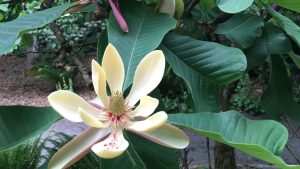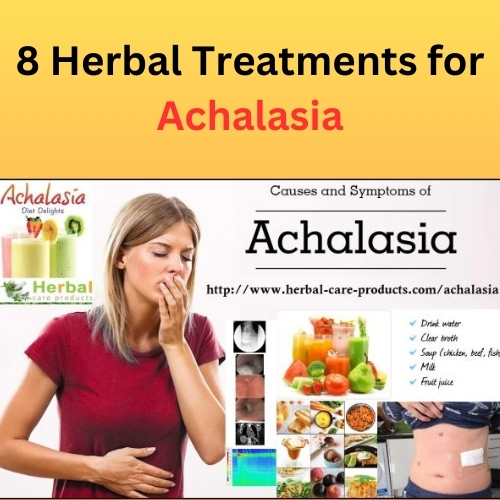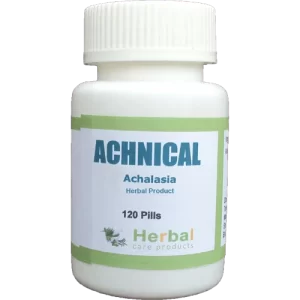What is Achalasia?
Achalasia which is the genetic disorder in which esophagus get fails to pass the food from mouth to stomach and this problem creates very difficulties for the patients. Due to this disease patient takes liquid diets instead of food. This disease also creates infection in food pipe which is harmful.
Related Article: Food getting stuck in your throat – Know who are candidate for Per oral Endoscopic Myotomy
In this disease of Achalasia the muscles does not show its movement properly and your gullet end blocked with food. The nerve cell in the lower esophagus tube does not perform their activities. The stomach (LES) does not open properly to pass food from mouth to stomach. The effective way to overcome to this disease is to prevent yourself from different caution in your enjoy life, if you are suffering from the disease of Achalasia then you should avoid to take coffee, alcohol, citrus food and chocolates. You should keep yourself way from the above mentioned food and it will helpful for you to cure this disease. Only one person out of 1 lac people are affected by this disease. Most of them are the ages of about 25 to 60 years.
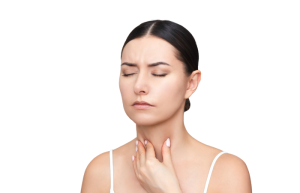
Symptoms of Achalasia
It is a specific kind of esophageal dysmotility. Its symptoms are mostly show the time sufferer is young adult. There are different symptoms of Achalasia
Related Article: Natural Herbal Treatment for Achalasia and Symptoms, Causes
- Infections
- Weight loss
- Difficulty in swallowing
- Coughing when you laid down
- Chest pain
- Cancer of esophagus or upper stomach
- Hereditary
- Inflammation of lower esophagus and the nerves
- Stretched esophagus and enlarged
Herbal Treatments for Achalasia
Herbal treatments for achalasia have gained attention as natural alternatives to support esophageal function and ease symptoms like difficulty swallowing and chest discomfort. Herbal remedies such as licorice root, slippery elm, and chamomile are known for their soothing properties, helping to reduce inflammation and promote relaxation of the esophageal muscles. Licorice root, in particular, has been used in traditional medicine to enhance digestion and protect the mucosal lining, which may benefit those struggling with achalasia.
In addition to individual herbs, herbal teas and tinctures may provide relief by relaxing the lower esophageal sphincter and promoting smoother swallowing. Valerian root and passionflower, for example, have calming effects on the nervous system, which can help reduce spasms in the esophagus. Ginger is another powerful herb that supports digestion and may help alleviate some of the discomfort associated with achalasia. By incorporating these herbal treatments for achalasia into daily routines, individuals may find natural symptom relief.
While herbal treatments for achalasia offer potential benefits, they should be used alongside medical guidance for optimal results. Achalasia is a serious condition that may require additional interventions such as medication or surgery. Consulting a healthcare professional before starting any herbal regimen ensures safety and effectiveness, particularly for individuals with underlying health conditions or those taking other medications. A holistic approach, combining herbal remedies with lifestyle modifications, can provide the best possible management for achalasia symptoms.
Natural Treatment for Achalasia
The person who has Achalasia must eat slowly while he is chewing the food. The meals should not be eating at the bedtime.Take the time to research your options including the best treatment approach and the right practitioner to perform it.
Related Article: Man Undergoes Life-Changing Surgery at Cleveland Clinic London
Let us look at some Natural Remedies for Achalasia. To handle Achalasia there are many different natural treatment for Achalasia without any side effect. Following are some Herbal Treatment for Achalasia are given below.
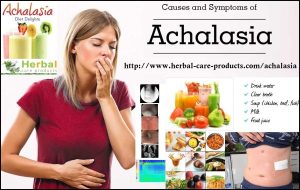
Related Article: Achalasia Cure Symptoms, Diagnosis Diet Treatment
Slippery Elm Bark
Slippery elm bark has been used for centuries as a natural remedy for digestive disorders, including achalasia—a rare condition that affects the esophagus, making it difficult to swallow. This herbal remedy is rich in mucilage, a gel-like substance that coats and soothes the esophageal lining, potentially reducing irritation and discomfort caused by achalasia. By forming a protective barrier, slippery elm may help ease swallowing difficulties and reduce acid reflux, which often accompanies the condition. Additionally, its anti-inflammatory properties can provide relief by calming the muscles of the esophagus, promoting smoother food passage into the stomach.
Incorporating slippery elm bark into the diet can be simple, as it is available in various forms such as powder, capsules, and teas. Many people mix the powdered form with water to create a soothing drink that coats the throat and esophagus. While slippery elm can offer symptomatic relief, it is not a cure for achalasia and should be used alongside medical treatments recommended by a healthcare professional. Consulting a doctor before using slippery elm is essential, especially for those on medications, as it may interfere with absorption. Despite its limitations, this natural remedy remains a gentle, supportive option for managing some of the discomfort associated with achalasia.
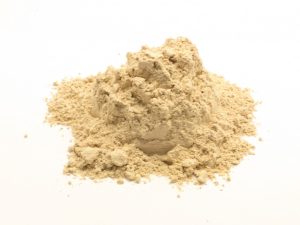
Probiotics
Achalasia is a rare esophageal disorder that affects the ability of the lower esophageal sphincter (LES) to relax properly, leading to difficulty swallowing, chest pain, and regurgitation. While medical treatments like balloon dilation and surgery are common, emerging research suggests that probiotics may play a supportive role in managing symptoms. Probiotics help maintain a balanced gut microbiome, which can influence digestive health and reduce inflammation. Some studies indicate that certain probiotic strains, such as Lactobacillus and Bifidobacterium, may improve esophageal motility and ease digestive discomfort associated with achalasia.
In addition to promoting gut health, probiotics may help reduce symptoms like acid reflux and bloating, which can worsen achalasia-related discomfort. By enhancing the gut-brain connection, probiotics may also support better nervous system regulation, potentially benefiting esophageal function. While more research is needed to confirm their effectiveness specifically for achalasia, incorporating probiotic-rich foods like yogurt, kefir, and fermented vegetables or taking high-quality supplements may provide relief. However, individuals with achalasia should consult a healthcare professional before adding probiotics to their regimen to ensure they are suitable for their condition.
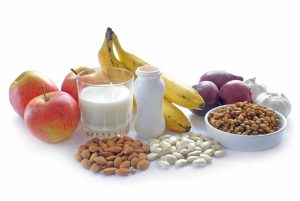
Barley Grass
Barley grass, a nutrient-dense superfood, has gained attention for its potential benefits in managing achalasia, a rare esophageal disorder that affects swallowing. Rich in vitamins, minerals, and antioxidants, barley grass is known for its anti-inflammatory and digestive-supporting properties. Since achalasia involves impaired muscle function in the esophagus, incorporating barley grass into a diet may help promote overall gut health and reduce inflammation, potentially easing some symptoms. Its high fiber content can also support digestion and prevent complications like acid reflux and indigestion, which are common in achalasia patients.
Additionally, barley grass contains enzymes and chlorophyll, which may aid in soothing the esophageal lining and improving nutrient absorption. Some studies suggest that chlorophyll can promote tissue healing, which may be beneficial for those with esophageal irritation caused by achalasia. While barley grass is not a direct cure, it can be part of a holistic approach to managing the condition alongside medical treatments and lifestyle adjustments. Consulting a healthcare professional before adding barley grass to the diet is recommended, as individual responses may vary.
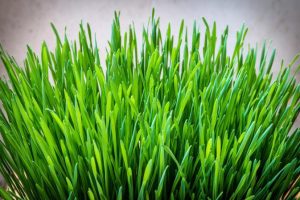
Pickle Juice
Pickle juice has gained attention as a potential remedy for achalasia, a rare esophageal disorder that affects swallowing due to the improper relaxation of the lower esophageal sphincter. The acidity and electrolytes in pickle juice, particularly vinegar and sodium, may help stimulate nerve function and muscle contractions in the esophagus, providing temporary relief from symptoms like difficulty swallowing and chest discomfort. Some individuals with achalasia report that drinking small amounts of pickle juice before meals or during flare-ups helps ease food passage by promoting muscle relaxation. However, scientific evidence supporting its effectiveness is limited, and those with high blood pressure or acid reflux should exercise caution due to its high sodium and acidity levels. Consulting a healthcare professional is recommended before incorporating pickle juice into an achalasia management plan.
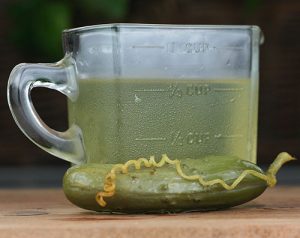
Apple Cider Vinegar
Apple cider vinegar (ACV) is often touted as a natural remedy for various digestive issues, and some people with achalasia explore its potential benefits. Achalasia is a rare esophageal disorder that affects the ability of the lower esophageal sphincter (LES) to relax, making swallowing difficult. While scientific evidence is limited, some individuals find that diluted apple cider vinegar helps stimulate digestion and ease symptoms like acid reflux, which can accompany achalasia. Its acidic nature may aid in breaking down food, potentially reducing discomfort. However, ACV should be used with caution, as excessive consumption can irritate the esophagus. Consulting a doctor before using ACV for achalasia is essential to ensure safety and effectiveness.
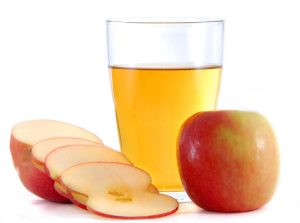
Related Article: Natural Remedies for Achalasia and Herbs Reduce Swallowing Disorder
Pica Prunella
Pica Prunella, a traditional herbal remedy, has been explored for its potential benefits in managing achalasia, a rare esophageal motility disorder that makes swallowing difficult. Known for its anti-inflammatory and soothing properties, Pica Prunella may help relax the lower esophageal sphincter and improve esophageal function. While scientific evidence on its effectiveness for achalasia is limited, some herbal medicine practitioners suggest that its natural compounds could aid in reducing symptoms such as chest pain and difficulty swallowing. However, it is essential to consult a healthcare professional before using Pica Prunella as a complementary treatment for achalasia.
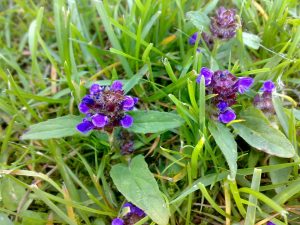
Rhizoma Sparganii
Rhizoma Sparganii, a traditional Chinese medicinal herb, has been explored for its potential benefits in managing achalasia, a rare esophageal disorder that impairs the ability of the lower esophageal sphincter to relax. Known for its properties in promoting blood circulation and resolving stagnation, Rhizoma Sparganii may help alleviate symptoms such as difficulty swallowing and chest discomfort by improving digestive motility. Some studies suggest that its bioactive compounds exhibit anti-inflammatory and smooth muscle-relaxing effects, which could aid in reducing esophageal spasms associated with achalasia. While promising, further clinical research is needed to validate its efficacy and ensure its safe use as a complementary treatment for this condition.
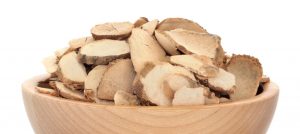
Cortex Magnolia Officinalis
Cortex Magnolia Officinalis, derived from the bark of the Magnolia tree, has been traditionally used in herbal medicine for its anti-inflammatory and gastrointestinal benefits. Recent studies suggest that its bioactive compounds, such as magnolol and honokiol, may help manage achalasia—a rare esophageal motility disorder characterized by difficulty swallowing and impaired relaxation of the lower esophageal sphincter. These compounds exhibit muscle-relaxing and neuroprotective properties, potentially improving esophageal function and reducing symptoms like dysphagia and chest discomfort. While preliminary findings are promising, further clinical research is needed to confirm its efficacy and establish appropriate dosages for achalasia patients.
